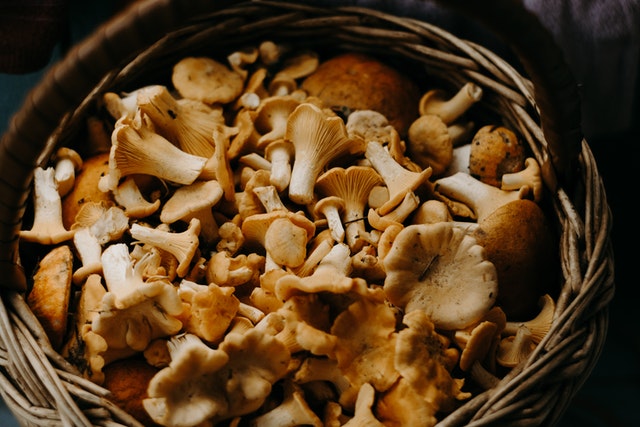
Make room for mushrooms!
Irene Hoffman
The most easily recognizable fungi are mushrooms. Fungi could be considered one of the most diverse, flexible and unique families on our planet. Amongst agroforestry experts, doctors and environmental activists there is a general consensus: fungi can save the world.
Mushrooms are a rich, low calorie source of fiber, protein, and antioxidants. They are easy to digest, sustainable, allergen free, plant based and non-gmo. They:
- are low in calories and contain large amounts of fiber and protein.
- contain large amounts of soluble dietary fiber that improves cholesterol levels and boosts heart health.
- are packed with micronutrients such as B vitamins, phosphorus, iron, selenium, potassium, copper and vitamin D, to help in energy production, iron utilization, the integrity of connective tissues, development of antioxidant enzymes, lowering blood pressure and proper nerve control.
- have as many antioxidants as many fruits and vegetables.
- give your immune system a boost.
- possess anti-inflammatory powers.
- alter gut bacteria for a healthier balance, aiding people to fight obesity.
That being said, sustainability experts across the globe believe that mushrooms are the most sustainable vegetable from the beginning of the growing process to harvest they are considered to be one of the lowest impact foods on the planet.
- Mushrooms require less growing materials, water, and energy than other types of crops.
- Mushroom growing also requires a minimal amount of water. It takes less than two gallons of water to produce one pound of button mushrooms, which – in comparison to the tens of gallons of water used to grow other fruits and vegetables.
- Energy-wise, mushroom growing is less than other crops, utilizing approximately 1 kilowatt hour per pound, which is about equal to one person brewing a pot of coffee.
- Mushroom farming emits much less carbon dioxide — and requires less land — than other agricultural practices.
- Growing mushrooms also generates far less carbon dioxide (CO2) than other types of vegetables. Every 1 pound of mushrooms emit about 0.7 pounds of CO2 equivalent emissions.
- Mushroom farming requires much less land than other types of agriculture. One square foot of land can produce 7.1 pounds of mushrooms per year, which means that one acre could produce 1 million pounds of mushrooms. They’re also space efficient. Mushrooms can be grown vertically, conserving space, it requires less deforestation, which is a major problem within the agriculture industry.
Mushrooms are both a healthy plant-based choice and the MVP of sustainable agriculture!
Check out our Eating for the Planet Recipe List to find a great mushroom bisque.
